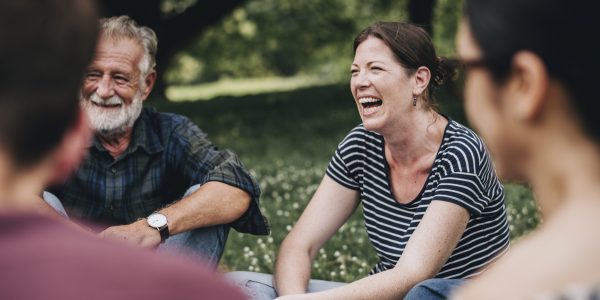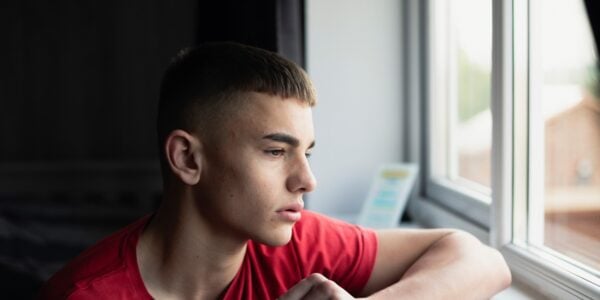
13/08/21
3 min read
Over a fifth (22%) of adults say they have experienced a complete breakdown of a relationship with either family, friends, colleagues, or neighbours in the past year, find UCL researchers as part of the Nuffield-funded COVID-19 Social Study.
Adults aged 18-29 were most likely to report a relationship breakdown (35% vs 12% of adults aged 60 and over), as were people with a diagnosed mental health condition (37% vs 19% of those with no diagnosed mental health condition) and people from ethnic minority groups (36% vs 20% of those not from ethnic minority groups).
A quarter of adults aged 18-29 (25%) reported a worsening of their relationships with their spouse or partner, and a quarter (25%) also reported a worsening of relationships with colleagues or co-workers. Conversely, nearly half (46%) of young adults said the quality of their relationships with their spouse or partner has been better than usual over the last year. This is a higher proportion than in adults aged 30-59 and those aged 60 and over, with 27% and 21% of these age groups reporting a better relationship with their spouse or partner, respectively.
Launched in the week before the first lockdown started, the ongoing UCL COVID-19 Social Study is funded by the Nuffield Foundation with additional support from Wellcome and UK Research and Innovation (UKRI). It is the UK’s largest study into how adults are feeling about the lockdown, government advice and overall well-being and mental health with over 70,000 participants who have been followed across the last 72 weeks.
Lead author, Dr Elise Paul (UCL Institute of Epidemiology & Health) said: “Our report shows the mixed impact of the COVID-19 pandemic and ensuing lockdowns on people’s relationships with others. Younger adults reporting a better relationship with their spouse or partner may have benefitted from furlough or remote working allowing them to spend more time together.
“On the other hand, the stress of the pandemic and lockdown measures which prevented people from seeing those outside their household may have contributed to the breakdown of other relationships, particularly those with people who do not live close by.
“Groups which have been shown to be less impacted by the pandemic, particularly older people who were less likely to face anxiety over job losses and finances, are also less likely to have reported the breakdown of a relationship. Again, this shows the disproportionate impact of the pandemic on those whose lives were changed the most, whether through the curtailing of an active social life, or the stress of frontline roles or insecure employment.”
The proportion of people concerned about catching or becoming seriously ill from COVID-19 increased over the two months preceding the end of the third lockdown to a height of 36%, but appears to be decreasing again and is now at 31%, although more data will be needed to confirm this trend.
‘Majority’ compliance with the rules and guidelines surrounding the COVID-19 lockdown has remained high throughout the easing of restrictions, and is currently at 89%. However, ‘complete’ compliance with the rules remains lower, at 38%.
Cheryl Lloyd, Education Programme Head at the Nuffield Foundation said: “Younger adults are not only more likely to have reported a relationship breakdown than older age groups, but, in recent months, they are also more likely to have reported concerns about catching or becoming seriously ill from COVID-19, worries about their finances and lower levels of life satisfaction. This research is well placed to inform policy decisions by providing valuable insights into the particular challenges different generations continue to face.”
COVID-MINDS Network
The study team is also running the COVID-MINDS Network: an international network of over 140 longitudinal mental health from over 70 countries. Through the network, dozens of scientists and clinicians are coming together internationally to collate results from mental health studies running in countries around the world and compare findings. The initiative is supporting the launch of new mental health studies in other countries, to research whether actions taken in specific countries are helping to protect mental health.



















































